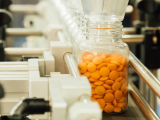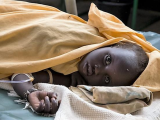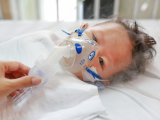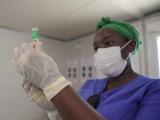Shortages of two drugs—cisplatin and carboplatin—used to treat a range of cancers are dire enough that the FDA is working with a Chinese manufacturer and a Canadian drugmaker to temporarily import and distribute cisplatin and said it is considering importing carboplatin. The Chinese cisplatin product is not approved for general marketing and use in the United States.
In late May, the National Comprehensive Cancer Network Best Practices Committee fielded a survey of 27 US member centers, finding that 93% of all treatment centers reported a carboplatin shortage, while 70% reported a lack of cisplatin.
The American Cancer Society released a statement last month warning that drug shortages are life-threatening: "A number of the drugs included in the shortage don't have an effective alternative. As first-line treatments for a number of cancers, including triple-negative breast cancer, ovarian cancer and leukemia often experienced by pediatric cancer patients, the shortage could lead to delays in treatment that could result in worse outcomes."
Reasons cited for the shortages include a manufacturing plant closure, quality problems leading to an FDA import alert, a lack of key starting materials, manufacturing delays, product discontinuation, and increased demand, not to mention low prices and profit margins for generic drugs, fewer manufacturers, and overreliance on foreign sources.
The plant closure occurred when generic-drug giant Teva shuttered its troubled plant in Irvine, California, in spring 2022 after the latest in a string of FDA warning letters about quality concerns, such as observations of contamination, dirty changing rooms and scrubs, and a years-long lack of sterilization and testing of equipment. The Irvine plant made, among dozens of other drugs, leucovorin and streptozocin, the latter of which it was the sole manufacturer.
A recent FDA import alert involved Intas Pharmaceuticals' plant near Ahmedabad, India. On June 2, the FDA sent a letter warning Intas that drugs made at the facility may be denied admission to the United States.
Intas markets its generic drug products in the United States through a subsidiary known as Accord. The import alert, however, doesn't include drugs that are in short supply in the United States, including capecitabine, carboplatin, cisplatin, and methotrexate.
Lack of key starting material
In addition, production of platinum, the key starting material in carboplatin and cisplatin, has been hindered by power shortages and transport workers strikes in South Africa, which supplies up to 75% of the world's platinum. And the war in Ukraine may have led buyers to avoid procuring the metal from Russia, which supplies 11% of the world's output.
Earlier this month, cisplatin manufacturers Fresenius Kabi and Hikma told ASHP that they expected resupplies yet this month, while Accord, a subsidiary of Intas, said it couldn't estimate a release date. Similarly, Fresenius Kabi estimates a June 2023 release date for carboplatin, while Pfizer told ASHP that production and resupply of some formulations may be delayed until July and September 2023, and Accord gave no estimated release date.
Several generic manufacturers of carboplatin and cisplatin have suggested that the shortages are due in part to increased demand for carboplatin and cisplatin. Stephen Schondelmeyer, PharmD, PhD, RDSP co-principal investigator, said that the demand increase appears to be due to increased ordering behavior stimulated by the absence of the Intas (Accord) products and a shifting of that demand to the few generics remaining on the market.
"Both carboplatin and cisplatin have had very stable demand, up to the point of the supply disruptions in early 2023," he said. "In response to potential shortages due to supply disruptions, health systems and other purchasers appear to have increased their order quantities in an attempt to protect against low inventory and on-hand drug shortages. Overall, however, the number of patients using these cancer drugs does not appear to have experienced a substantial increase."





















